Dr. Janet Taylor
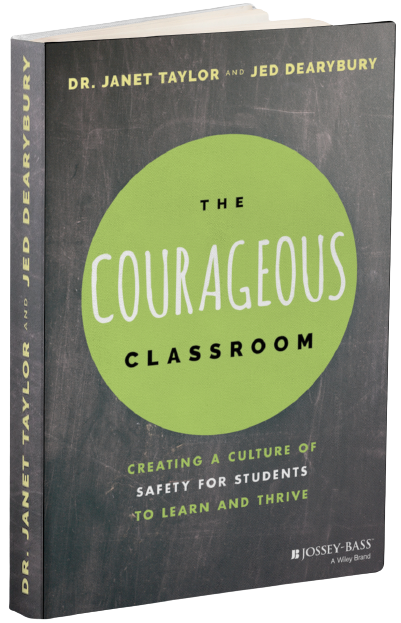
Order Today
The Courageous Classroom: Creating a Culture of Safety for Students to Learn and Thrive
Dr. Janet Taylor & Jed Dearybury
Help students and educators cope with fear in the classroom.
“Human life will never be understood unless its highest aspirations are taken into account. Growth, self-actualization, the striving towards Health, the quest for identity and autonomy, the yearning for excellence (an other way of phrasing the striving “upward”) must by now be accepted beyond question as a widespread and perhaps universal human tendency…growth is often “a painful process”
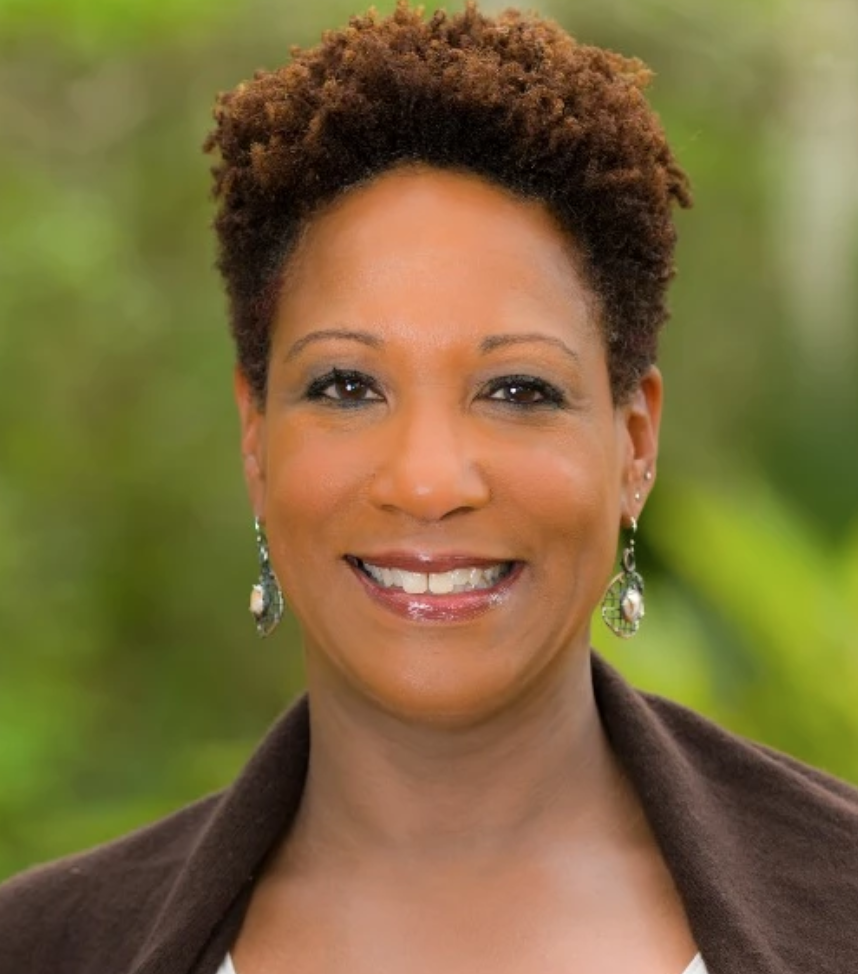
About Me
Dr. Janet Taylor is psychiatrist, self-care coach, entrepreneur, mother and lifestyle columnist, and has many coaching programs that are an integration of her years as a medical doctor, life coach, and mindfulness expert.
Dr. Taylor holds an M.D. from the University of Louisville, completed her psychiatric residency at New York Medical College and obtained an MPH from Columbia University’s Mailman School of Public Health in Health Promotion and Disease Prevention.






What I Do
My mission is to guide you towards a better life
Self-Care
Putting your self first is not selfish, but necessary.
Health & Wellness
A healthy brain and body is critical for meeting the challenges in life.
Cultural Shifts
If you have a brain you’re biased. You can mitigate bias through conscious self-awareness and honest action.
Medical Cannabis
Our body’s Endocannabinoid System and Phytocannabinoids help with sex, pain, sleep, mood, and diet.
Finding the Self in Self-Care
“Self-care is a health activity accounting for most of the daily health practices of people across the world. However, if you asked most folks how they practice self-care, the more common responses relate to something that’s done for them i.e. get a massage or a manicure, take a trip, rather than what they do for themselves to improve emotional, physical or spiritual health.”
“Simply put, self-care is the ability to be aware of your own needs and demands, and utilize your own resources for self-awareness, to be healthier and ease your suffering. In other words, if you come out of your massage and the only thing lighter is your wallet, that’s not self-care. Self-care is when you are able to be with your struggles, stressors and daily challenges and understand them as not done to you but for you by finding your ability to work through them within yourself or of you.”
find your power⚬
find your power⚬
find your power⚬
find your power⚬
find your power⚬
find your power⚬
find your power⚬
find your power⚬
find your power⚬
on purpose⚬
on purpose⚬
on purpose⚬
on purpose⚬
on purpose⚬
on purpose⚬
on purpose⚬
on purpose⚬
on purpose⚬
Caring for myself is not self-indulgence, it is self-preservation, and that is an act of political warfare.
What is Self-Care?
Awareness
Inner Dialogue
Awareness of Suffering
Mindset
Action
Fueled by a sense of purpose
Motivation
Self-Efficacy
Confidence
“I am enough”
Gentleness
Bearing witness to one’s ability to succeed
Compassion
Mindfulness
Loving-Kindness
One with Humanity-not alone in suffering
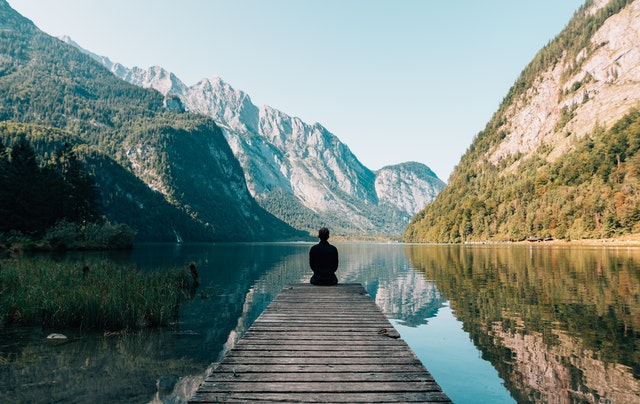
Recover and Reflect
When we are stressed, our brains use energy from our bodies. It’s important to pay attention to your sleep patterns and get a good night’s rest. Exercise is a great stress buster and helps with blood flow to our brain and organs. Avoid snacking on sweet, salty, or high caloric foods and instead choose foods that are rich in antioxidants, eat fresh vegetables and hydrate with water. Getting back into balance, physically, mentally and spiritually is critical.
Allow time for reflection on what you have learned after a stressful period. We can make better strategic decisions when we have accurate prior beliefs about ourselves, and our capacity to reach our goal. Chronic stress can impact how and what we learn.
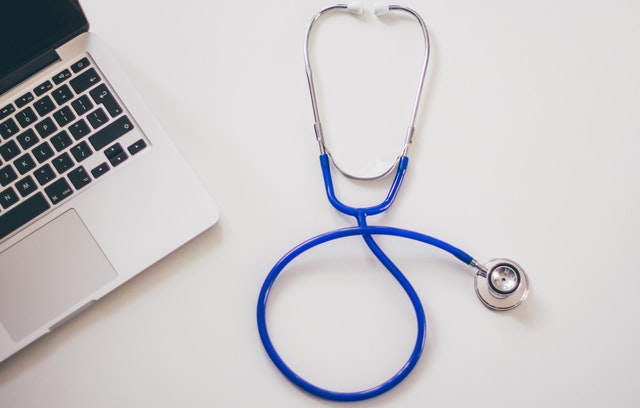
Evidence
Information is key. Identify your sources of truthful, science-based information. Keep your own medical history and prescription treatment handy. Make a list of where you can go for testing and when you need to go. If you are uninsured or underinsured search out medical providers or institutions where you can be treated. Local health departments are a good place to start.
Assist elderly relatives, friends or neighbors with resources. Be mindful of undocumented folks and pass on relevant resources and information. Try to keep at least two weeks worth of medication and non-perishable food on hand if possible.
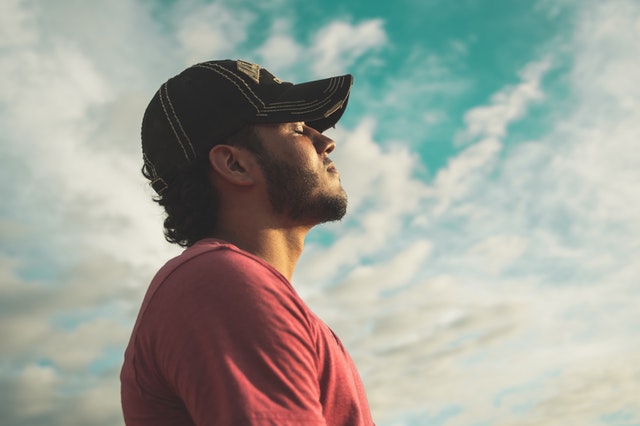
Self-care
Become your greatest resource by being aware of your own stress levels and how they impact you. Practice treating yourself with self-compassion, (how you would treat an old friend) without guilt or shame. Use mindfulness to accept your thoughts and emotions and give yourself what you need to feel in balance.

Establish Your Control
Don’t make it too complicated. Reflect on how your body feels when you’ve accomplished something, are productive and satisfied. When your life feels chaotic and spinning, slow down and replace out of control feelings with what you’re in control of.

Togetherness
Use technology to connect and check in on others while distancing. Isolation and loneliness can contribute to anxiety and depression. Look for opportunities to connect socially online or create your own opportunities. If you can’t go to the gym, use apps for a motivating workout. Create a virtual book club or share cooking recipes in a big group.
Send encouraging notes to each other. Staying six feet apart or social distancing does not have to separate us from being kind or compassionate.
A healthy brain is our best resource for keeping us safe and making decisions to manage and learn from our challenges. RESET to get back our brains and bodies back into balance.




